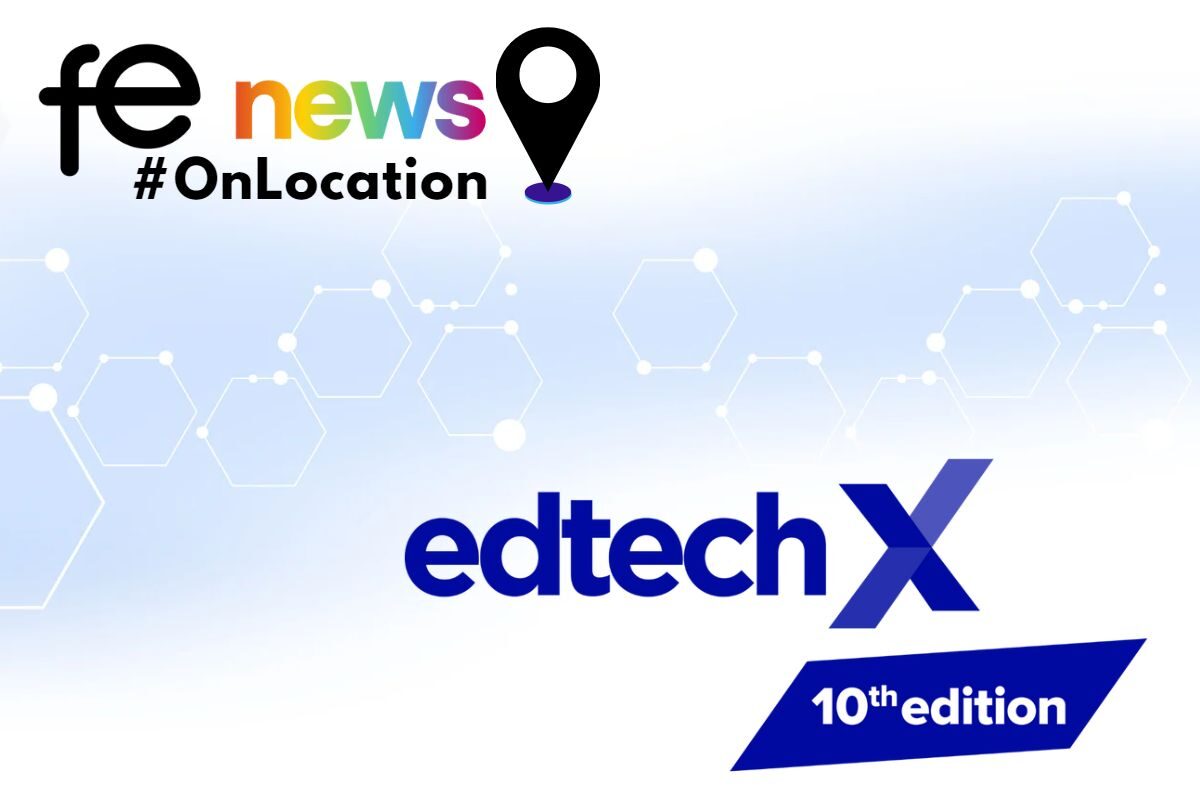EdTechX Summit 2023: FE News on Location

This year, we are #OnLocation at EdTechX! Celebrating its 10th year, EdTechX has been full of insightful talks and networking opportunities.
At FE News, we have even had the opportunity to interview some epic attendees! These will be published on FE News over the next week, along with a site-wide takeover of one of their interesting sessions… The Debate on ChatGPT – A Learning Tool or Threat to Education.

This session was hosted by Joshua Whole (CEO @ Mindstone), Beth Havinga (Director @ European EdTech Alliance), Chia-Wei Wu (Executive Director of Centre for Educational Technology & Innovation @ University of Pennsylvania School of Dental Medicine), Latha Ramanan (Sr. VP, Product Growth – Head of Strategic AI Initiatives @ Merlyn Mind) & Laurie Forcier (Director of Partnerships @ EDUCATE Ventures Research).
What have we chatted about this year?
In our short interviews, we got the opportunity to chat to Charles McIntyre (Chairman and CEO IBIS Capital & Chairman and CIO EdTechX Holdings II), Stavros Yiannouka (CEO @ WISE) and Carla Aerts (Independent EdTech Thought Leader).
In these short vox-pop interviews, we discuss topics such as Ethical Artificial Intelligence (AI), AI and Digital Equity, the new core or essential skills in an AI age, AI and neurodiversity, Metaverse and exploring the potential future of how AI is moving into OI (Organoid Intelligence).
We have previously interviewed Charles on redefining the role of EdTech – The Rise of Cobots and AI in Education. Check it out below:
What is Organoid Intelligence?
OI is an emerging multidisciplinary field working to develop biological computing using 3D cultures of human brain cells (brain organoids) and brain-machine interface technologies.
By leveraging the benefits of biological learning, organoid intelligence has the potential to enhance automation and reduce energy consumption. Brain organoids also provide insights into how the human brain performs complex tasks like learning and memory.
This could revolutionise FE by enhancing both the student experience and the teacher’s understanding of their students.
Neurodiverse students could get the specific support they need to work efficiently and to their full potential, while teachers would be able to see what these students need to be able to assist them in achieving their full potential.











Responses